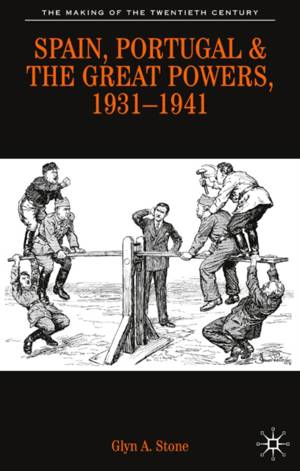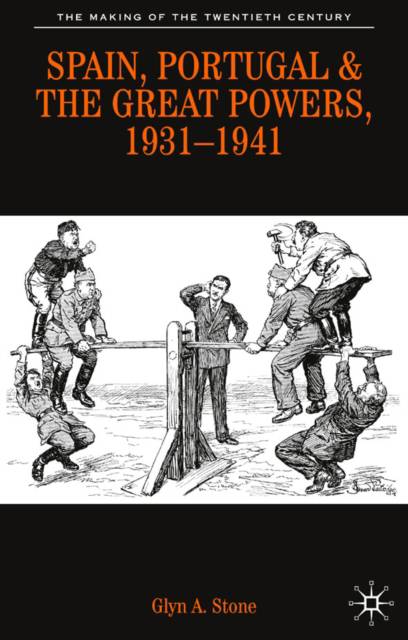
- Retrait gratuit dans votre magasin Club
- 7.000.000 titres dans notre catalogue
- Payer en toute sécurité
- Toujours un magasin près de chez vous
- Retrait gratuit dans votre magasin Club
- 7.000.0000 titres dans notre catalogue
- Payer en toute sécurité
- Toujours un magasin près de chez vous
Description
The Spanish Civil War and its significance in the foreign relations of the Great Powers - Britain, France, the United States, Nazi Germany, Fascist Italy and Soviet Russia - has attracted the attention of numerous historians and readers. This new study re-evaluates the economic, ideological, political, diplomatic, military and strategic reasons for the involvement or non-involvement of the Great Powers in the Spanish conflict. It also examines civil war diplomacy through the London based Non-Intervention Committee.
In addition, Spain, Portugal and the Great Powers, 1931-1941 explores:- The foreign relations of the Great Powers during the Second Spanish Republic between its inception in 1931 and the outbreak of civil war in July 1936
- The conflicting policies and interests of the Great Powers concerning Portugal following the establishment of the Estado Novo in 1933 and, in particular, the outbreak of the civil war in Spain in 1936
- The economic, strategic and military concerns and ambitions of the Axis and Allied Powers with regard to Spain and Portugal after the civil war and during the early Second World War Here, for the first time, with the inclusion of Portugal, the Great Power relations are set in the wider context of the Iberian Peninsula, making this an essential guide to a turbulent period in World history.
Spécifications
Parties prenantes
- Auteur(s) :
- Editeur:
Contenu
- Nombre de pages :
- 336
- Langue:
- Anglais
- Collection :
- Tome:
- n° 17
Caractéristiques
- EAN:
- 9780333495605
- Date de parution :
- 09-12-05
- Format:
- Livre broché
- Format numérique:
- Trade paperback (VS)
- Dimensions :
- 153 mm x 216 mm
- Poids :
- 426 g

Les avis
Nous publions uniquement les avis qui respectent les conditions requises. Consultez nos conditions pour les avis.






